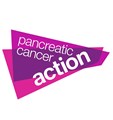Story
Thank you for taking the time to visit our JustGiving page.
I wanted to set up this page in memory of my Dad, Terry Ward. He was a kind, considerate, intelligent man. A ‘fixer of problems’ and a real gentleman who I genuinely looked up to and admired.
On the 16th September 2016, the day after Terry’s 53rd birthday, he was diagnosed with pancreatic cancer. He had visited his GP for over 12 months with non-specific symptoms before a CT scan revealed a tumour in the tail of his pancreas along with numerous other tumours in his liver. Unfortunately, like 80-85% of those diagnosed, surgery was not an option and Terry began the first of only 2 lines of chemotherapy. This stabilised the cancer for 5 months before it spread to his bones. He then began his last course of chemotherapy which slowed the growth for 3 months before it spread to his lungs, spleen and stomach. Incredibly, Terry managed to hold on for another 2 months before passing away at home on the 21st July 2017, the day before his daughters wedding.
Each year around 10,000 people in the UK are diagnosed with pancreatic cancer. It has the lowest survival rate of all cancers, just 5% of those diagnosed survive for five years. For many cancers five year survival rates have increased hugely since the 1970‘s, for breast cancer - where large amounts have been spent on research - five year survival rates have increased from 50% to 80%. Yet despite its high death rate pancreatic cancer has attracted little research funding - currently less than 3% of research funding from the major funding bodies.
Pancreatic Cancer Action is a small charity with a focus on improving early diagnosis of pancreatic cancer and improving the quality of life for those affected by pancreatic cancer. Their aim is to ensure that patients are diagnosed with pancreatic cancer at a stage that gives them the best chance of survival. They fund research into improving early diagnosis, create award-winning awareness campaigns, provide educational courses for primary care professionals and provide information for patients and clinicians.
It is our hope that we can contribute to this effort and one day for this horrible disease to be seen as a curable condition.
